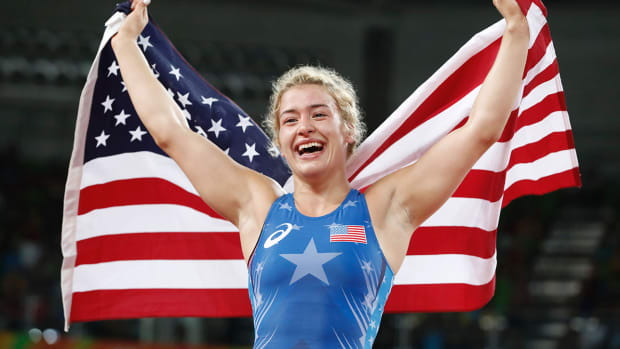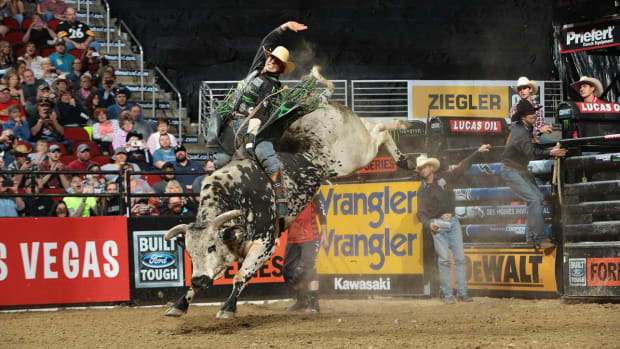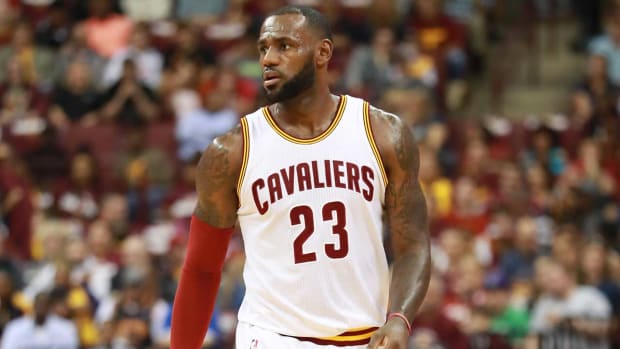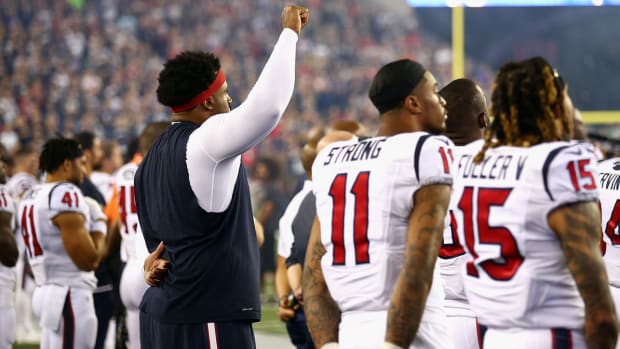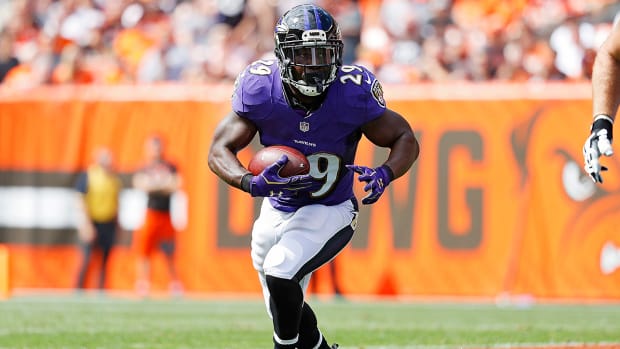Charles Barkley? He's now just the Round Mound Of Enough Already
If both of you can laugh, you have a lot to laugh about. On the other hand, if only one of you can laugh, one of you, inevitably, is laughing at the other. — James Baldwin
Two decades ago Charles Barkley infamously cautioned us he was not a role model. He has made as much clear again and again and againand again and again over the course of his careers as a professional basketball player and an NBA analyst. He’s a notorious (and arguably proud) drinker, an avid gambler, and an ill-tempered putdown artist. He has spit at a fan (and, inadvertently, on a child), thrown a man through a plate-glass window and — as he subsequently lie bleeding — suggested that the man deserved to die,threatened police with violence, and driven drunkenly in search of a repeat performance of the best fellatio he ever had from a prostitute.
Despite — or, more realistically, because of — his very public embrace of degeneracy, Sir Charles has now comfortably settled into a Knighthood as one of America’s favorite off-color truth-tellers, a sort of lovable, inebriated, ranting uncle unrestrained by the leash of basic civility and decency that makes the rest of us mind our manners.
Barkley walks in a long line of celebrities to whom society grants exemption from the fundamental moral codes we champion; we encourage his boorishness much in the same way we celebrate the womanizing of Derek Jeter and Hugh Hefner, the crassness and dope-smoking of Snoop, and the “mischievousness” of Bill Clinton. These are figures Joan Didion described as the dreams we don’t want to admit having, evidence of “the apparently bottomless gulf between what we say we want and what we do want, between what we officially admire and secretly desire, between, in the largest sense, the people we marry and the people we love. “
Charles Barkley: ‘Good for Draymond Green’ for slapping fan
In that context — and only in that context — can we make sense of the announcement that TNT is granting Barkley a television show to discuss something as serious and significant as race. (Not “racism” of course, but “race” — and under a slanted title with an antagonistic implication nonetheless). At this moment in American society, when racial tension is at full boil; with blacks being shot dead on camera with jarring regularity; with politicians openly characterizing minorities as “sub-groups” that haven’t contributed to Western civilization, Charles Barkley has inexplicably been appointed to navigate these challenging waters.
Why? Because people will tune in. In our society, ratings and buzz and revenue have become the ultimate justifications, even in this absolutely crazy political climate.
As a player, Barkley was a once-in-a-generation talent, so prodigious an athletic specimen, he succeeded in spite of a legendarily negligent work ethic. As a thinker, he is even lazier than he was as a player, but with none of the God-given gifts to counterbalance his intellectual indolence.
In fact, Charles Barkley is objectively terrible at his current job in every way except being entertaining. (And even in that regard, his entertainment is tied less to a dynamic, compelling personality than it is bottom-of-the-barrel buffoonery.) Basketball is the one thing in life Sir Charles had a true talent for, and yet somehow he still can’t produce any legitimate insights for his audience about the game.
His opinions on players, strategies, and contenders betray a complete and utter lack of research, understanding, or even regard for the topics. He is unprepared and ineffective at discussing basketball in any way that enlightens viewers. He recycles the same empty talking points about jump-shooting teams and size ad nauseum. He rarely seems to have paid close attention to the games he subsequently analyzes, substituting “bold” opinions that run a very limited gamut — from ad hominem attacks to jokes about cities and people who are “ugly” or “fat.”
His insights on race are even less nuanced and less informed. They are, however, predictable.
Charles Barkley: LeBron can't crack my all-time top five
He believed the George Zimmerman verdict was fair and correct; he argued — in the wake of a medial examiner’s ruling to the contrary — that Eric Garner’s homicide was not in fact a homicide; he agreed with the controversial decision not to indict Darren Wilson for the murder of Michael Brown; he believed the cops who pulled over Philando Castile for having a wide nose might have been justified in murdering the man “because in fairness, because some black people out there are crooks;” he shied away from declaring slavery horrific, because — despite an inestimable amount of historical validation — he didn’t personally experience it.
Barkley seemingly has never met a clichéd talking point rooted in the noxious rhetoric of black pathology he could resist.
The point — clear though it is — isn’t just that Barkley is unfit to lead, discuss, or mediate any discussion on racism in America. The point — clear though it is — isn’t just that Barkley is a stone-cold, garden-variety moron. The point is — and we’ve covered this terrain before — the media makes itself complicit in the most cynical form of race-baiting by continually granting a platform to loud, uninformed, intellectually unqualified black sports analysts who discuss race relations almost exclusively in the framework of black cultural pathology.
Rare Photos of Charles Barkley
Charles Barkley
Charles Barkley
Charles Barkley, Larry Bird and Robert Parish
Charles Barkley and Moses Malone
Charles Barkley
Charles Barkley and Charcey Glenn
Charles Barkley
Charles Barkley
Charles Barkley
Charles Barkley and World B. Free
Charles Barkley
Charles Barkley
Timothy Busfield, Charles Barkley, Mike Gminski and Ken Olin
Charles Barkley
Charles Barkley and Larry Bird
Charles Barkley
Charles Barkley and Manute Bol
Charles Barkley
Charles Barkley, Danny Ainge, Kevin McHale and Robert Parish
Charles Barkley
Charles Barkley
Charles Barkley
Charles Barkley and Billy Crystal
Charles Barkley
Charles Barkley, Clyde Drexler, Isiah Thomas and Wilt Chamberlain
Charles Barkley and Allen Iverson
Charles Barkley and Reggie Jordan
Charles Barkley and Jack Nicholson
Charles Barkley and Leroy Neiman
Charles Barkley, Martha Stewart and Jeff Probst
Charles Barkley and John Smoltz
Charles Barkley
Charles Barkley
Charles Barkley
Charles Barkley and Tiger Woods
Charles Barkley
Charles Barkley
Joe Dumars, Dominique Wilkins and Charles Barkley
Charles Barkley, Carolyn Murphy and Jay Leno
Charles Barkley and Dick Bavetta
Charles Barkley
Charles Barkley and Suckki Jang
Charles Barkley and Hank Haney
Charles Barkley
Charles Barkley
Charles Barkley and Michael Douglas
Charles Barkley
Charles Barkley and Paul Brittain
Charles Barkley, Bill Hader, Jay Pharoah, and Kenan Thompson
Charles Barkley
There is no more compelling argument against the extreme form of capitalism we’ve come to practice in America than how it has bled into and begun to unravel the basic moral fabric of our society. Decency and our collective psychic health are things that should never be contingent on the market share of the offended party, nor the literal or cultural capital they wield.
Sadly, when what we most need is intelligence, insight, and moral guidance, TNT’s sanctioning such an uninformed, polarizing, and counterproductive voice to quarterback a show about race in America is unforgivable.
- From the SI Vault: Citizen Barkley (2002): He's a trash-talking, leg-pulling, high-rolling, golf-playing black Republic who says whatever's on his mind and doesn't care what you think of him.
Both Mainstream America’s and major networks’ dubious love affair with Barkley can only be seen through Didion’s lens of secret desire vs. official admiration — his popularity an oblique confession that so many of us prefer spectacle to discourse, scapegoating to responsibility. At a time when making sense of our social reality becomes more difficult by the day, Barkley offers us the easy way out; we accept it at our own peril.
Charles Barkley isn’t the voice of any constituency, black or otherwise. He certainly isn’t the voice of reason, on race or much else. He lacks any credentials or credibility to discuss complex social issues. One is left to wonder what it will take for the powers that be to figure out that moral incoherence in this country can’t be unpacked and sorted out by someone like Barkley, who is himself a symptom of it. Or whether his intended audience will ever realize that, much like the minstrels of pre-civil rights era America, Barkley functions merely to reassure his audience — barricaded inside a pen of their own innocence — of its outstanding credit rating in the midst of moral bankruptcy.
Maybe most tragically, Barkley falls short even as a minstrel character. What marked the best vaudeville characters, like Bert Williams, was a double-consciousness that subverted the surface performance. The comedy was delicately layered and ironic; the discerning observer could see the genius behind the mask of the sad clown.
In Barkley’s case, you get the sense he has played the clown for so long, and has been so handsomely rewarded for it, he long ago lost the border between the self and the costume. Maybe there never was a border. Maybe, when you peel back Sir Charles’ sad clown mask, you find an even sadder clown, one who has never realized that he devolved into the cruelest joke of all: A tragic punchline devoid of both humor and humanity.




















































